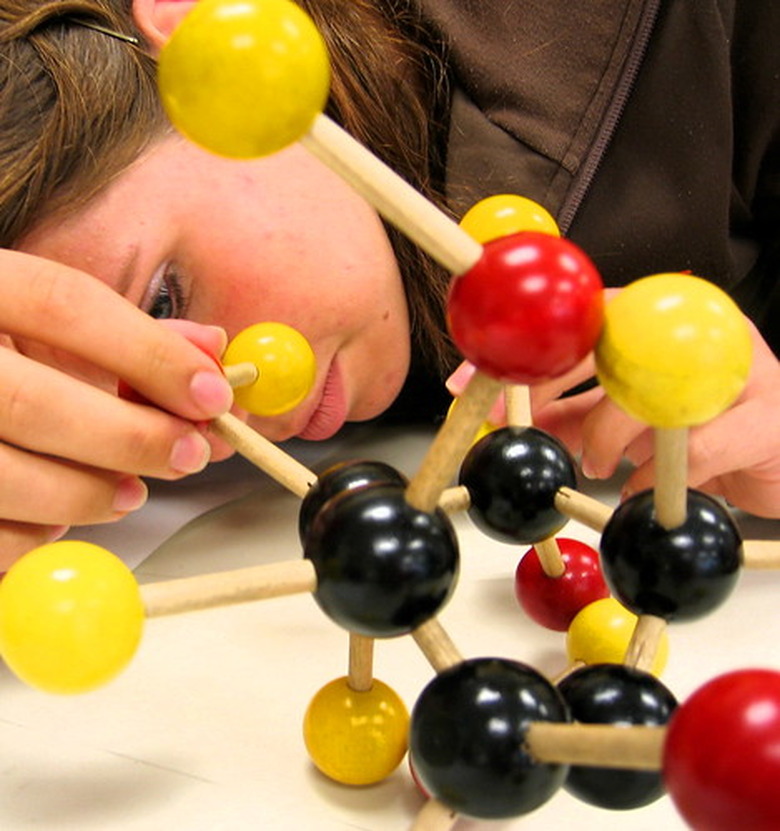Difference Between Atoms & Ions
Atoms and ions are the minute and basic particles of all matter. Chemical reactions based upon the composition and interactions of different atoms are responsible for building the parameters of your physical environment.
Composition
Composition
Atoms are made up of an electron cloud that surrounds a proton and neutron nucleus. Different atoms that have the same number of protons are grouped together as elements. Molecules describe groupings of two or more atoms. Ions are a type of atom or molecule that has lost or gained electrons.
Charge
Charge
Electrons carry a negative charge, while protons are positively charged. Neutrons do not have any charge. Atoms that have the same number of protons and electrons are not charged. Ions have positive or negative charge because of different numbers of electrons and protons within the atom or molecule.
Stability
Stability
Neutral atoms are relatively stable because of their lack of charge. Ionization refers to the process of neutral atoms gaining or losing electrons to become ions. Ions are rarely separate from each other; they are attracted to ions of the opposite charge.
Compounds
Compounds
Chemical compounds contain at least two separate elements. Chemical compounds sometimes form when oppositely charged ions meet and bond together.
Bonds
Bonds
Atoms are held together by nuclear and electromagnetic force. Separate atoms may share electrons to form covalent bonds as molecules. Of course, ionic bonds describe ions that are attracted to each other by opposite charge.
References
Cite This Article
MLA
Bofah, Kofi. "Difference Between Atoms & Ions" sciencing.com, https://www.sciencing.com/difference-between-atoms-ions-5595821/. 24 April 2017.
APA
Bofah, Kofi. (2017, April 24). Difference Between Atoms & Ions. sciencing.com. Retrieved from https://www.sciencing.com/difference-between-atoms-ions-5595821/
Chicago
Bofah, Kofi. Difference Between Atoms & Ions last modified August 30, 2022. https://www.sciencing.com/difference-between-atoms-ions-5595821/
